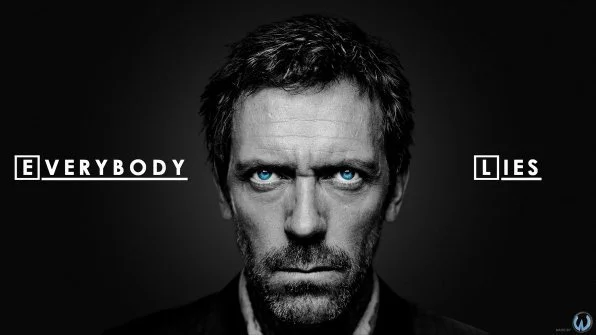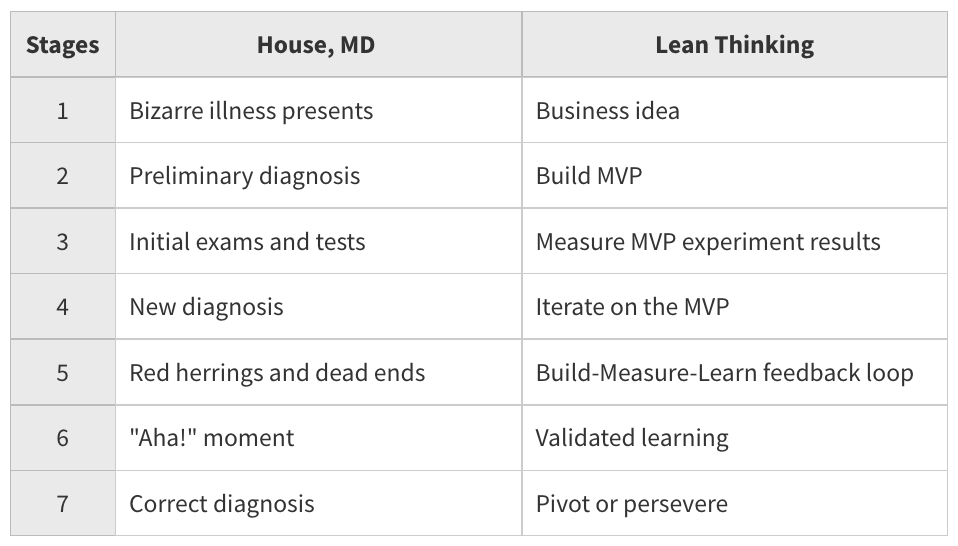Why House, MD is the perfect Lean Startup
Remember the TV show House, MD starring Hugh Laurie? The one about the brilliant yet cynical medical diagnostician who limps around with a cane and loves solving puzzles while fighting an addiction to pain meds? I love that show. I’ve watched the entire series 4x as of right now, and I’ll probably run through it a few more times before I’m done with it. Each episode follows this exact formula:
we meet the patient suffering from a bizarre and seeming inexplicable illness
House is called in and piqued by the medical conundrum
initial exams and tests provide conflicting clues, leaving the diagnosis unclear
House leads his team through a series of differential diagnoses, tests, consultations, and sometimes reckless procedures
the team clashes, driven by ambition, differing opinions, and House's unorthodox methods
red herrings and dead ends create suspense and frustration, raising the stakes for the patient
then, a seemingly unrelated clue, often triggered by an outside experience for House, leads to the "aha!" moment
the correct diagnosis is confirmed, a risky treatment plan is formulated, and time is often running out
ethical dilemmas arise, forcing House and the team to make tough choices under pressure
the patient undergoes treatment, with success rarely guaranteed and sometimes ending in tragedy
Predictable, yes. Which is why the show runners explore some philosophical issues like life, death, God, and the human condition. It makes for good television. It also makes for good lean startup thinking.
How?
Let’s compare the House, MD formula with the lean thinking methodology found in The Lean Startup by Eric Ries. Side note: for those who haven’t read The Lean Startup, here’s a quick synopsis of the book.
House, MD and The Lean Startup
So, while House, MD might seem like a medical drama with a predictable rhythm, beneath the surface lies a blueprint for navigating uncertainty and conquering seemingly insurmountable challenges. Just like a lean startup pivots and iterates based on customer feedback, House and his team adjust their diagnoses and treatments with each new test result, pushing boundaries and challenging convention along the way. The "aha!" moments, fueled by seemingly random observations, echo the lean startup's emphasis on learning from unexpected sources and embracing failure as a stepping stone to success. Ultimately, House, MD shows us that even in the high-stakes world of medicine, there's beauty in the messy process of discovery, reminding us that even the most predictable formulas can hold hidden lessons in innovation and resilience. So, next time you watch House diagnose a baffling illness, remember, you might just be witnessing a masterclass in lean thinking in action.

